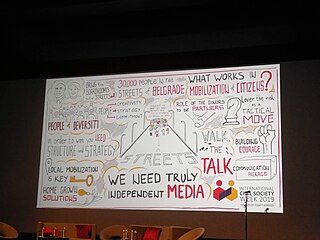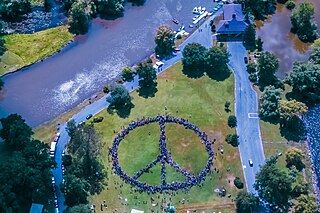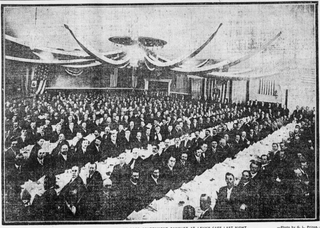
Mediation is a negotiation facilitated by a third-party neutral. It is a structured, interactive process where an impartial third party, the mediator, assists disputing parties in resolving conflict through the use of specialized communication and negotiation techniques. All participants in mediation are encouraged to actively participate in the process. Mediation is a "party-centered" process in that it is focused primarily upon the needs, rights, and interests of the parties. The mediator uses a wide variety of techniques to guide the process in a constructive direction and to help the parties find their optimal solution. A mediator is facilitative in that they manage the interaction between parties and facilitates open communication. Mediation is also evaluative in that the mediator analyzes issues and relevant norms ("reality-testing"), while refraining from providing prescriptive advice to the parties. Due to its voluntary nature, a person cannot be compelled to use mediation to resolve their dispute. However, a suggestion from the Court may be difficult to resist.

A non-governmental organization (NGO) is an organization that generally is formed independent from government. They are typically nonprofit entities, and many of them are active in humanitarianism or the social sciences; they can also include clubs and associations that provide services to their members and others. NGOs can also be lobby groups for corporations, such as the World Economic Forum. NGOs are distinguished from international and intergovernmental organizations (IOs) in that the latter are more directly involved with sovereign states and their governments.

Civil society can be understood as the "third sector" of society, distinct from government and business, and including the family and the private sphere. By other authors, civil society is used in the sense of 1) the aggregate of non-governmental organizations and institutions that advance the interests and will of citizens or 2) individuals and organizations in a society which are independent of the government.
Rebellion is a violent uprising against one's government. A rebel is a person who engages in a rebellion. A rebel group is a consciously coordinated group that seeks to gain political control over an entire state or a portion of a state.
My saying: श्रीराम खड्का द्वारा लेखिएको

E-democracy, also known as digital democracy or Internet democracy, uses information and communication technology (ICT) in political and governance processes. The term is credited to digital activist Steven Clift. By using 21st-century ICT, e-democracy seeks to enhance democracy, including aspects like civic technology and E-government. Proponents argue that by promoting transparency in decision-making processes, e-democracy can empower all citizens to observe and understand the proceedings. Also, if they possess overlooked data, perspectives, or opinions, they can contribute meaningfully. This contribution extends beyond mere informal disconnected debate; it facilitates citizen engagement in the proposal, development, and actual creation of a country's laws. In this way, e-democracy has the potential to incorporate crowdsourced analysis more directly into the policy-making process.
Danish Committee for Aid to Afghan Refugees (DACAAR)(Danish: Den danske komité for hjælp til afghanske flygtninge) is a non-political, non-governmental, non-profit humanitarian and development organization working to improve the lives of the Afghan people since 1984.

Social entrepreneurship is an approach by individuals, groups, start-up companies or entrepreneurs, in which they develop, fund and implement solutions to social, cultural, or environmental issues. This concept may be applied to a wide range of organizations, which vary in size, aims, and beliefs. For-profit entrepreneurs typically measure performance using business metrics like profit, revenues and increases in stock prices. Social entrepreneurs, however, are either non-profits, or they blend for-profit goals with generating a positive "return to society". Therefore, they use different metrics. Social entrepreneurship typically attempts to further broad social, cultural and environmental goals often associated with the voluntary sector in areas such as poverty alleviation, health care and community development.
Electronic participation (e-participation) refers to the use of ICT in facilitating citizen participation in government-related processes, encompassing areas such as administration, service delivery, decision-making, and policy-making. As such, e-participation shares close ties with e-government and e-governance participation. The term's emergence aligns with the digitization of citizen interests and interactions with political service providers, primarily due to the proliferation of e-government.

Peacebuilding is an activity that aims to resolve injustice in nonviolent ways and to transform the cultural and structural conditions that generate deadly or destructive conflict. It revolves around developing constructive personal, group, and political relationships across ethnic, religious, class, national, and racial boundaries. The process includes violence prevention; conflict management, resolution, or transformation; and post-conflict reconciliation or trauma healing before, during, and after any given case of violence.
The Foundation for Tolerance International is a Kyrgyz non-governmental organization (NGO) founded in 1998 to prevent conflict and build peace and justice in Central Asia. It has operated for nine years in a fluid and changing context, but it has remained focused on its original goals of conflict prevention on a range of vertical and horizontal conflicts. FTI’s work is focused on two main directions:

The North–South Centre, officially the European Centre for Global Interdependence and Solidarity, is a Partial Agreement of the Council of Europe, the oldest political organisation of European states.

The United States has a history of citizen, nonprofit, and other non-partisan groups advocating good government that reaches back to the late-19th-century municipal-level Progressive Movement and the development of governmental professional associations in the early part of the 20th century, such as the American Public Human Services Association and the International City/County Management Association. Many of these groups had their genesis at the Public Administration Center at 1313 East 60th Street, at the University of Chicago.
swisspeace is a practice and research institute located in Basel, Switzerland. It is dedicated to the promotion of effective peacebuilding. Partnerships with local and international actors form the basis of its work. Together with its partner organizations, swisspeace combines expertise and creativity to reduce violence and promote peace in conflict-affected contexts.
Osita B. Izunaso is the current Senator for the Imo West (Orlu) constituency of Imo State, Nigeria, taking office in June 2023. He is a member of the All Progressive Congress (APC).
Transition management is a governance approach that aims to facilitate and accelerate sustainability transitions through a participatory process of visioning, learning and experimenting. In its application, transition management seeks to bring together multiple viewpoints and multiple approaches in a 'transition arena'. Participants are invited to structure their shared problems with the current system and develop shared visions and goals which are then tested for practicality through the use of experimentation, learning and reflexivity. The model is often discussed in reference to sustainable development and the possible use of the model as a method for change.
PartnersGlobal, formerly known as Partners for Democratic Change, is a non-government organization founded in 1989 to build local capacity for conflict resolution and change management in the developing world. It does this through two main methods the first being the establishment of local, independent nonprofits of which there are 18 all of whom are members of the international network Partners for Democratic Change International which was formally established under Belgium law in 2004.
Raymond Shonholtz J.D. was the founder of two community mediation organizations; Community Boards in 1976 and Partners for Democratic Change in 1989.
Collaborative partnerships are agreements and actions made by consenting organizations to share resources to accomplish a mutual goal. Collaborative partnerships rely on participation by at least two parties who agree to share resources, such as finances, knowledge, and people. Organizations in a collaborative partnership share common goals. The essence of collaborative partnership is for all parties to mutually benefit from working together.
The West Africa Network for Peacebuilding (WANEP) is a leading Regional Peacebuilding organisation founded in 1998 in response to civil wars that plagued West Africa in the 1990s. Over the years, WANEP has succeeded in establishing strong national networks in every Member State of ECOWAS with over 550 member organisations across West Africa. WANEP places special focus on collaborative approaches to conflict prevention, and peacebuilding, working with diverse actors from civil society, governments, intergovernmental bodies, women groups and other partners in a bid to establish a platform for dialogue, experience sharing and learning, thereby complementing efforts at ensuring sustainable peace and development in West Africa and beyond.







